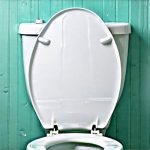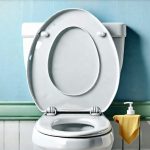The bathroom – often considered a sanctuary for personal hygiene – can unexpectedly become a site of anxiety and even physical risk when digestive health falters. Many individuals experience fluctuating bowel habits, urgency, and discomfort that directly impact their confidence and safety within this private space. This isn’t merely about embarrassing moments; it’s frequently a signal from the body indicating an overloaded digestive system struggling to process food efficiently and eliminate waste predictably. Understanding the connection between gut function and bathroom stability is crucial for regaining control and fostering a sense of well-being. We often focus on symptoms, but addressing the root cause – a stressed digestive protocol – is where lasting change begins.
This article will explore how imbalances within the digestive system can directly contribute to instability in the bathroom, focusing on the interplay between diet, stress, gut microbiome health, and functional bowel issues. It’s important to remember that everyone’s digestive system is unique, and what works for one person may not work for another. The goal here isn’t to diagnose or prescribe treatment but to provide a comprehensive overview of potential contributing factors and strategies for improving overall digestive resilience. Seeking guidance from qualified healthcare professionals – doctors, registered dietitians, and functional medicine practitioners – is always recommended when experiencing persistent digestive issues. Understanding key takeaways can be helpful in this process.
The Digestive System & Bathroom Instability: A Complex Relationship
The process of digestion is remarkably intricate, encompassing a series of coordinated actions from the mouth to the rectum. When this system becomes overwhelmed or unbalanced, it can manifest in numerous ways, often culminating in bathroom-related anxieties. Issues like Irritable Bowel Syndrome (IBS), Inflammatory Bowel Disease (IBD), and even simple food intolerances can disrupt the natural flow, leading to unpredictable bowel movements. Urgency, a sudden and intense need to use the restroom, is a common symptom that dramatically impacts stability and confidence. This urgency isn’t simply about needing to go; it’s often coupled with fear of accidents or being far from a toilet.
The connection extends beyond just frequency and urgency. The gut microbiome – the trillions of bacteria residing in our digestive tract – plays an integral role in digestion, nutrient absorption, and immune function. An imbalance in this microbial ecosystem (dysbiosis) can lead to inflammation, altered bowel motility, and increased sensitivity, all contributing to bathroom instability. Furthermore, stress significantly impacts gut function; the “gut-brain axis” is a well-established two-way communication system where emotional states directly influence digestive processes and vice versa. Chronic stress often exacerbates existing digestive issues and can even trigger new ones. Learning how digestive enzymes differ from probiotics can also be beneficial.
Finally, dietary choices are paramount. Highly processed foods, excessive sugar intake, insufficient fiber consumption, and dehydration all place significant strain on the digestive system. These factors disrupt normal motility, alter gut microbiome composition, and contribute to inflammation. Essentially, a lifestyle that consistently overloads the digestive protocols – through poor diet, chronic stress, or an imbalanced microbiome – creates a fertile ground for bathroom instability to flourish. It’s important to note signs from test results that might call for a diet overhaul.
Functional Bowel Disorders & Their Impact
Many individuals experience symptoms suggestive of IBS or other functional bowel disorders without receiving a definitive diagnosis. These conditions are characterized by functional disturbances – meaning there’s often no detectable structural damage in the digestive tract, but significant discomfort and altered bowel function exist. The underlying mechanisms remain complex and multifaceted, but they frequently involve visceral hypersensitivity (increased sensitivity to normal gut sensations), motility dysregulation (abnormal muscle contractions in the intestines), and psychological factors like anxiety and depression.
The impact of functional disorders on bathroom stability is profound. Imagine a scenario where even mild bloating triggers intense anxiety about potential accidents, leading to avoidance behaviors – limiting social activities or constantly seeking out restrooms. This creates a vicious cycle; anxiety exacerbates digestive symptoms, which further fuels the anxiety. It’s crucial to recognize that these aren’t simply “nervous” issues; they are genuine physiological responses to altered gut function and heightened sensitivity.
Effective management of functional bowel disorders often requires a holistic approach encompassing dietary modifications (like low-FODMAP diets), stress reduction techniques, microbiome support through probiotics or prebiotics, and psychological therapies like cognitive behavioral therapy (CBT). It’s about learning to manage the symptoms and regain control over one’s body, rather than simply suppressing them. Understanding digestive panels can provide valuable information for this process.
Identifying Your Triggers
Pinpointing specific triggers is a cornerstone of managing bathroom instability. This requires careful self-observation and potentially keeping a detailed food diary and symptom journal. Consider these steps:
- Track your diet: Record everything you eat and drink for at least a week, noting portion sizes and timing.
- Monitor your symptoms: Document the frequency, urgency, consistency of bowel movements, levels of bloating or discomfort, and any associated emotional states.
- Identify patterns: Look for correlations between specific foods, activities, or stress levels and your digestive symptoms. Are there particular ingredients that consistently trigger problems? Do symptoms worsen during periods of high stress?
- Consider elimination diets: Under the guidance of a healthcare professional, you might explore eliminating potential problem foods (like gluten, dairy, or certain FODMAPs) to see if it improves your symptoms.
This process isn’t about restrictive dieting; it’s about gaining valuable insights into your body’s unique sensitivities and tailoring your lifestyle accordingly. It can also help identify whether specific food intolerances exist. Food intolerance differs from a food allergy, being less severe but still capable of causing significant digestive distress. Knowing early-stage tools for spotting decline can be helpful in preventing issues.
The Role of Fiber & Hydration
Fiber is essential for healthy digestion, but the type and amount matter greatly. Insoluble fiber adds bulk to stool, speeding up transit time through the intestines, which can be helpful for constipation but may exacerbate diarrhea in some individuals. Soluble fiber dissolves in water, forming a gel-like substance that slows down digestion and promotes regularity. A balanced approach incorporating both types of fiber is often ideal, but finding the right balance requires experimentation.
Hydration is equally critical. Dehydration can lead to hard, difficult-to-pass stools, increasing strain on the digestive system and potentially triggering urgency or discomfort. Aim for at least eight glasses of water per day, adjusting based on activity level and climate. Avoid excessive caffeine and alcohol, as these can have a diuretic effect, further contributing to dehydration. Prioritizing hydration isn’t just about drinking more water; it’s about making it a consistent habit throughout the day.
Stress Management Techniques for Gut Health
Given the strong gut-brain connection, managing stress is paramount for improving bathroom stability. A range of techniques can be employed:
- Mindfulness and Meditation: Regular practice helps calm the nervous system and reduce overall stress levels.
- Deep Breathing Exercises: Simple breathing exercises can quickly alleviate anxiety and promote relaxation.
- Regular Physical Activity: Exercise is a natural stress reliever and improves gut motility.
- Yoga or Tai Chi: These practices combine physical movement with mindfulness, offering both physical and mental benefits.
- Seeking professional support: If stress is overwhelming, consider therapy or counseling to develop coping mechanisms and address underlying emotional issues.
It’s not about eliminating stress entirely – that’s unrealistic – but rather learning to manage it effectively. Chronic stress weakens the digestive system over time, making it more vulnerable to instability. Building resilience through consistent stress management practices can significantly improve gut health and overall well-being. For some patients, digestive enzyme protocols are also helpful in managing symptoms.


















